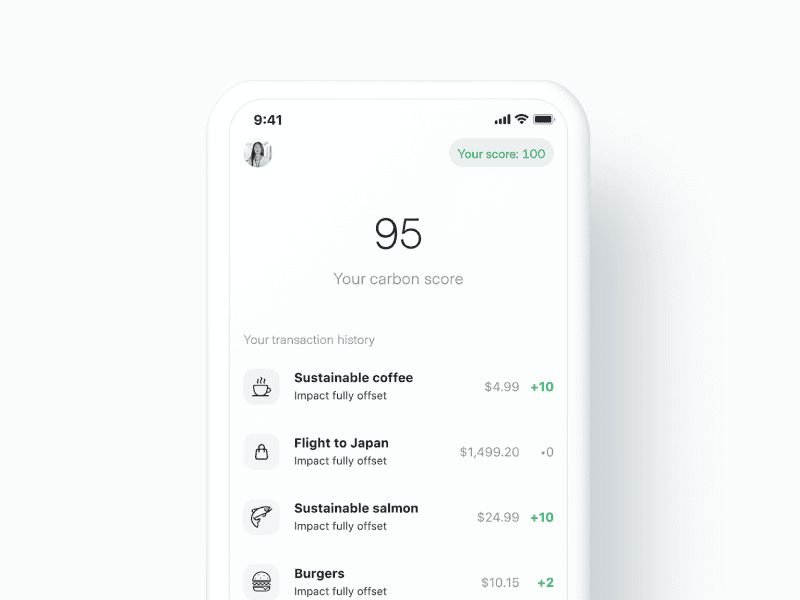Introduction
This began as a pivot from Lake Finance. Our goal with Buy with Impact was to make creating positive environmental impact as simple as swiping your credit card, and we succeeded. Our team and product was ultimately bought by a big bank in Canada, and we explored everything from merchant-funded rewards, to bid/asks on consumer financial data, insurance products, and green investing.
I had a number of learnings building this venture out — It was the first hardest challenge of my career, and it had a great reward at the end of the day, both for our team, and for the environment.

Designs



How We Won
Before writing a single line of code, I ended up testing a few concepts through Instagram campaigns and getting a read before committing to build anything
This helped us amass a huge waitlist really quickly and distill messaging
Some learnings:
Calling something the “first” wouldn’t work out for us — too risky for some investors and too risky for consumers
Most people’s consumption behaviour didn’t change that much (read: their carbon footprint didn’t change too much month to month) so introducing some sort of marketplace to slowly shift behaviour worked the best
2/3s of cashback or credit card rewards doesn’t get used
Users like the option to direct interchange, cashback or other rewards to CO2 offsets, planting trees or leaving it in a digital wallet
Creating an ecosystem of complimentary apps was the way to go for BWI: Most of financial services is about upselling and it’s relatively straightforward to upsell based on consumption behaviour, data and interests
Monetization presented itself in two ways:
Merchant partners (moving advertising from FB/Instagram to BWI)
Margin on CO2 offsets
CAC was roughly $6/signup
Building a brand was much more important than building a product for BWI (solving for trust)
Use a new channel to build an audience (see TikTok screens below)
Instagram DMs are way more powerful to build trust than most people realize, by the end of a few conversations I could get anyone to connect their bank account to BWI (through Plaid)
Working on solving climate change can (and will be) profitable — not everything in climate has to be a B Corp or a non-for profit
Aligning incentives with money is fruitful (I’m sure you know this already)
If you want more of my learnings/research, get in touch on Twitter or contact me

Additional Context
Here's slightly more context in how we won market share, early adopters, and targeting niches on both Instagram and TikTok.

Super targeted ads on Instagram worked wonders for us. Mostly targeting dual-income, 0-2 kids, mostly in influential cities and neighborhoods.

I was able to get great responses from target consumers, and eventually got bank account details as we didn't have a working Plaid connection, but people were so adamant about this product they were willing to share that kind of information with me!
TikTok Niches
We found TikTok niches in order to find target consumers, and rode the early TikTok wave of content and targeting.



